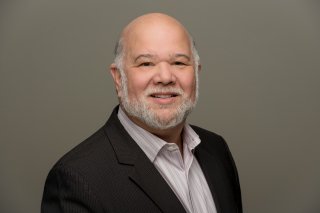A group of disabled and non-disabled people of various races, ethnicities, genders and ages pose for a photo in front of Capitol Hill. Photo Credit: Ameya Okamoto
To read more of Dr. Alonzo Plough's article, please click here.
People with disabilities deserve the same rights and opportunities as everyone, including access to affordable housing, employment opportunities, safe transportation, quality education and healthcare. And disability rights advocates have tirelessly fought to uproot ableism embedded in laws, policies, and societal norms.
One advocate who has devoted his life to advancing rights for people with disabilities is Javier Robles. Robles had an accident at age 16 and became quadriplegic. With the loving support of his family and a resourceful guidance counselor, he pursued higher education, eventually earning a juris doctorate. During his college years, he emerged as a vocal advocate and organizer, fighting for access, inclusion, and opportunity for people with disabilities.
In the years since, Robles has helped make progress for disability rights in his home state of New Jersey and nationwide. A professor at Rutgers University, Robles chaired the New Jersey COVID-19 Disabilities Action Committee. We are privileged that he served on RWJF’s National Commission to Transform Public Health Data Systems as well.
What role did the ADA play in protecting people with disabilities during the pandemic?
If anyone thought the ADA fully protected people with disabilities, COVID proved otherwise. When it hit, we saw competition for scarce, life-saving resources like testing and ventilators—and people with disabilities were openly discriminated against and left behind. Healthcare went first to people without disabilities. Veterans who fought wars were dying in nursing homes that were hit especially hard by COVID. People with intellectual and developmental disabilities also perished at horrifyingly high rates, often in group home settings. Latinos and Black people were hit hard and, although we don’t have reliable statistics, we know that people with disabilities and people of color with disabilities were too.
It was a reality check. There’s work to be done to improve access and change attitudes. Change will come when we teach disability history and empower younger people with disabilities, so they will be able to fight for—and win—change.

About the Author
Alonzo Plough, chief science officer and vice president, Research-Evaluation-Learning, is responsible for aligning all the Foundation’s work with the best evidence from research and practice and incorporating program evaluations into organizational learning.


Comments (0)